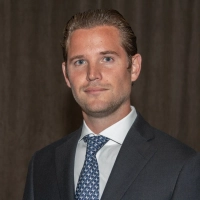Effective leadership teams exhibit specific traits that directly impact organizational success, as confirmed by experts in leadership development and organizational psychology. This article examines fifteen critical leadership characteristics that consistently differentiate high-performing teams, from integrity and emotional intelligence to transparency and an ownership mindset. Through expert insights and practical examples, readers will discover how these fundamental traits create lasting business value and foster resilient organizational cultures.
- Steadiness Under Pressure Converts Crisis To Success
- Adaptability Turns Challenges Into Growth Catalysts
- Ownership Mindset Creates Momentum Beyond Titles
- Intellectual Humility Distributes Expertise Across Teams
- Self-Aware Leaders Drive Long-Term Performance
- Authenticity Builds Trust and Unleashes Innovation
- Consistent Actions Define Stronger Cultural Standards
- Emotional Intelligence Outperforms Pure Strategy
- Responsibility Transforms Failures Into Learning Opportunities
- Curiosity Transforms Traditional Practices Into Sustainable Solutions
- Integrity Creates Trust and Operational Excellence
- Trustworthiness Solves Problems Before They Escalate
- Intellectual Honesty Produces Superior Strategic Decisions
- Transparency Converts Challenges Into Shared Achievements
- Emotional Maturity Creates Security Amid Pressure
Steadiness Under Pressure Converts Crisis To Success
I first look for practiced steadiness under pressure, the habit of keeping curiosity, clarity, and composure when complexity spikes. In environments where stakes are high and information is partial, technical skill is necessary but insufficient; what separates effective leadership is the capacity to slow down long enough to read patterns, make a principled choice, and then mobilize others with calm confidence.
Steadiness matters because it creates psychological space for teams to surface hard truths, iterate rapidly, and align around decisions without panic or false certainty. A concrete example: a globally ranked institution had stalled its transformation, meetings were defensive, priorities blurred, and trust eroding. We convened multi-day, bespoke dialogues and supported the leaders to show up with curious inquiry rather than performative certainty. By asking probing questions, holding tension productively, and mapping choices instead of prescribing answers, the dynamic shifted. Leaders reclaimed agency, distinguished controllable levers from noise, rebuilt trust, and the system moved from paralysis to purposeful action.
In practice, steadiness is trainable: it is cultivated through rehearsal, candid feedback, and an ethic of curiosity. For me, it is the single characteristic that reliably converts fragile moments into success. It is the core of resilient leadership.

Adaptability Turns Challenges Into Growth Catalysts
One key characteristic I look for when building a leadership team is adaptability. In fast-moving industries, especially in startups, leaders must be comfortable navigating uncertainty, learning quickly, and making decisions without perfect information.
At Runway, adaptability has been the single most important factor in our growth. We started as a recruiting services company and later pivoted into an AI-powered hiring platform that helps companies find and hire vetted early-career talent ready to hit the ground running. That shift wasn’t easy. It required our founders to completely rethink our business model, rebuild our product strategy, and adopt new technology in real time.
Our design cofounder is a great example. When we pivoted, he transitioned from focusing on design to leading operations for our customer acquisition funnels, something completely outside his background. He taught himself the systems, built the processes from scratch, and helped drive a major increase in student acquisition. His ability to adapt directly contributed to helping us acquire over 30,000 student users in under 3 months.
The best leaders evolve as fast as the business does. That mindset turns challenges into catalysts for growth.

Ownership Mindset Creates Momentum Beyond Titles
For me, the most important characteristic when building a leadership team is ownership — the instinct to treat every challenge and opportunity as if it were one’s own. Skills and experience can be taught, but that deep sense of accountability and initiative can’t. It’s what drives leaders to make decisions quickly, take responsibility for outcomes, and constantly look for ways to improve.
At Tinkogroup, I’ve seen this mindset make all the difference. A few years ago, one of our project managers noticed a recurring inefficiency in how client data was being verified. Instead of waiting for direction, she built a small task force to redesign the process. Within weeks, her solution cut turnaround time by 30% — and became a new internal standard.
That kind of ownership doesn’t just solve problems; it creates momentum. It builds a culture where leadership isn’t about titles but about taking action.

Intellectual Humility Distributes Expertise Across Teams
Intellectual humility is the single most defining trait I look for in a leadership team. In healthcare, decisions carry both operational and ethical weight, and leaders who can admit uncertainty create space for collaboration and innovation. During our transition to a new electronic health record system, that humility proved critical. Instead of defaulting to top-down directives, department heads openly shared what they didn’t know, which encouraged staff to contribute frontline insights that leadership had overlooked.
That openness shortened the learning curve by weeks and prevented costly implementation errors. It also built a culture where expertise was distributed rather than centralized. Teams felt ownership because their input shaped real outcomes. In a sector where overconfidence can jeopardize both workflow and patient care, humility remains the trait that quietly sustains long-term success.

Self-Aware Leaders Drive Long-Term Performance
The key characteristic I look for when building a leadership team is a blend of self-awareness and a commitment to growth within the culture we are shaping together. Technical skill can be developed and strategy can be taught, but leaders who understand themselves and remain intentionally curious about how they affect others create the kind of trust that drives long-term performance.
Self-awareness is the foundation of authentic leadership. It gives leaders the humility to listen, the courage to adjust, and the clarity to connect individual strengths to organizational purpose. Yet self-awareness alone is not enough. When it is paired with a genuine commitment to growth and cultural alignment, it becomes a multiplier of impact. These are the leaders who model curiosity, invite feedback, and understand that culture is not declared; it is demonstrated daily.
Over the years, I have learned firsthand that self-aware leaders and teams are more authentic, willing to be vulnerable, and not just open to feedback but actively seek it. That willingness to learn publicly and to acknowledge growth edges builds psychological safety and creates momentum for continuous improvement. It is the quiet force that turns hierarchy into collaboration and individual effort into collective progress.
During my years leading complex organizations through periods of growth and change, I saw how this combination could increase performance. By intentionally selecting and developing leaders who were both emotionally intelligent and open to feedback, we created a culture built on trust, reflection, and shared accountability. Over time, this approach helped successful compliance-oriented teams grow into a high-performance culture defined by trust, learning, and shared ownership.
Today, in my coaching work with executives and superintendents, that same principle remains central. The most effective leaders are those who combine self-awareness, cultural fit, and a relentless commitment to personal and professional growth. They understand that leadership is not about perfection; it is about progress. When leaders model that mindset, it becomes contagious.
Ultimately, the best leaders know themselves, align with the culture they are shaping, and never stop growing. That combination does not just build better teams; it builds enduring organizations that thrive through every season of growth and change.

Authenticity Builds Trust and Unleashes Innovation
Authenticity stands as the leadership quality which holds the most value for me. Leaders who want to succeed must develop trust through authentic leadership, which shows their genuine self, including their positive qualities and their areas for improvement. Authenticity creates an environment where people feel comfortable to be themselves, which removes all social divisions between different positions. It builds loyalty that can’t be manufactured.
A former colleague took charge of an internal project through direct admission of her knowledge gaps while seeking feedback from others. The team gained new energy through her honest method, which helped them create original solutions. The open nature of the situation made viewers experience direct impact from what they were watching. The experience showed all of us that leadership requires more than flawless execution because it exists to build relationships.
Authentic leaders eliminate all obstacles which prevent people from connecting their human nature to their organizational position. The team becomes more effective when members show openness because it creates bravery and unity between them. People who have the freedom to express themselves will create innovation at a quicker rate. Leadership evolves into a shared experience through authenticity because it moves away from command-based leadership to include all participants.

Consistent Actions Define Stronger Cultural Standards
Accountability mixed with consistency is the quality I prioritize. Leaders who demonstrate their values through personal conduct generate stronger cultural effects than any organizational policy can achieve. Consistency creates stability which leads to confidence during times of uncertainty. The process of goal achievement becomes possible through defined expectations.
A team member from my past history showed up early to work every day while helping new employees and accepting full responsibility for all work errors. The team members used reliability as their unofficial performance benchmark, which they adopted as their standard. This behavior led others to improve their performance without any direct instruction. Our work ethic developed through the unspoken commitment we showed throughout the years.
Leadership requires leaders to demonstrate behaviors which they want their team members to replicate. Consistency creates confidence. The message indicates that values remain constant regardless of what situation occurs. The development of reliability as a cultural value will automatically lead to better performance results.

Emotional Intelligence Outperforms Pure Strategy
The one thing I look for is emotional intelligence. You can train for strategy, but you can’t fake self-awareness or empathy. Leaders who can read the room, manage their own ego, and actually listen will outperform the smartest person in the room every time. At Prose, I’ve seen emotionally intelligent leaders calm chaos before it spreads—they catch burnout early, defuse tension, and keep people feeling safe enough to speak up. That’s what builds real momentum. Without EQ, even the best strategy collapses under bad vibes.

Responsibility Transforms Failures Into Learning Opportunities
Leaders who take responsibility for their actions are what I look for in a leader. Organizations build enduring credibility through their commitment to claim all their successes and failures. Leaders who practice accountability need to start taking action instead of allowing situations to develop naturally. The program helps students develop self-assurance, which enables them to gain respect from their classmates and workmates.
A leader from my team took full responsibility for the client project miscommunication that occurred. The team focused on identifying mistakes instead of shifting responsibility while creating new operational systems to prevent similar problems from happening again. The group established trust through its practice of sharing all necessary information in a clear manner. The experience demonstrated to me that learning leads to personal development instead of focusing on avoiding mistakes.
The team established a new standard after that incident, which defined accountability as a path to improvement instead of punishment. No motivational speech can match the speed at which trust develops through this approach. Organizations use accountability to transform their difficulties into learning opportunities, which help them improve their performance. Organizations achieve enduring business success through this practice, which builds reliability as their core foundation.

Curiosity Transforms Traditional Practices Into Sustainable Solutions
I always look for curiosity in my leadership team because it drives innovation and opens new ways to connect with our land and resources. Curiosity inspires leaders to ask how we can do better for both people and the planet. It builds a mindset that welcomes learning and growth in the business. I have seen this attitude turn ideas into actions that transformed traditional farming into sustainable practices.
One of our leaders once asked how we could improve soil health, and that single question led to the use of regenerative techniques that enriched biodiversity across our land. Curiosity helps us explore the unknown while staying true to our values. It keeps our vision active and forward-looking. Every challenge becomes a chance to create positive change, and this spirit of curiosity keeps our purpose strong in a changing world.

Integrity Creates Trust and Operational Excellence
The core principle of any leadership team I build requires absolute integrity to function properly. Honest practice requires more than truthful speech because it demands that people perform actions which align with their spoken words. Decisions made with integrity follow established principles instead of choosing the most convenient option. Leaders who maintain ethical consistency create a chain reaction which affects all members of their team.
I backed the career development of a team member who delivered tough news with care during challenging times. The system operated reliably, which built trust between departments so they could make decisions at a faster pace. The system improved teamwork because team members stopped questioning each other’s motives. The workplace became more predictable because of integrity, which resulted in increased productivity.
When every leader upholds integrity, collaboration becomes smoother, and accountability is no longer enforced—it’s expected. The organization creates a cultural standard which proves that excellent results stem from complete transparency. The base of innovation requires integrity because people will exchange their ideas when they experience safety. High trust levels create an environment which enables creativity to thrive.

Trustworthiness Solves Problems Before They Escalate
One key thing I look for in leaders is trustworthiness. If I can’t trust someone to do the right thing—even when no one’s watching—then the whole team can fall apart.
For example, we had a big project with tight deadlines. One of our leaders admitted early on that part of the plan wasn’t working instead of hiding it. Because of that honesty, we fixed the issue quickly and still finished on time. If they hadn’t spoken up, the problem could have blown up later.
Trust matters because it keeps the team strong, united, and focused on solving problems—not covering them up.

Intellectual Honesty Produces Superior Strategic Decisions
Intellectual honesty stands as the essential quality which I consider most important. Leaders need to face difficult realities which oppose their current beliefs. The system produces decisions through actual data instead of depending on personal opinions. Teams should focus on achieving excellence because their approval does not affect the requirement for intellectual honesty.
A senior analyst discovered data which proved our initial assumptions wrong during one of my previous projects. Leadership decided to handle the situation through strategic changes when they first encountered it. The decision allowed us to prevent losing multiple months of work that would have been useless. The situation proved that truth will always triumph over individual pride in every situation.
A team that shows intellectual honesty will create superior strategies through trusted relationships which set them apart from regular teams. The method enables students to acquire proper questioning skills instead of teaching them defensive responses. The path to advancement reveals itself through decisions which follow the path of authentic growth. That is the hallmark of mature leadership.

Transparency Converts Challenges Into Shared Achievements
The leadership trait I value most is transparency. Any title or speech fails to create trust at the same speed as this approach. Transparency ensures that everyone is working from the same information. The system distributes accountability responsibilities to all team members instead of needing direct orders from the top.
A leader I observed handled budget problems by showing all financial details to his team while working together to find solutions. The open approach allowed him to convert his anxiety into complete mastery of the situation. People now had the ability to express their thoughts directly instead of needing to follow instructions. The honest approach turned an uncomfortable situation into a shared achievement.
The practice of transparency leads to better alignment because all team members understand the purpose which motivates them to execute their tasks. The process removes confusing information and false rumors before they spread throughout the organization. Teams that operate transparently communicate better and execute faster. The extended process transforms individual challenges into shared accomplishments.

Emotional Maturity Creates Security Amid Pressure
Emotional maturity is the trait I seek in building a leadership team. This kind of skill and strategy can be learned; but the ability to keep your feet on the ground when there is pressure coming from all sides, take responsibility, make decisions that you have carefully thought through (especially when there are conflicting priorities) is relatively rare. Emotional maturity forms how leaders treat people and performance alike.
When we encountered an unforeseen operational failure, our senior manager held an internal huddle, reallocated workloads, and handled customer service to stop issues from escalating. Hiring and promoting emotional maturity shapes an entire culture. Leaders who have control of their emotions create an environment where people feel secure to tell the truth, take risks and make mistakes.


